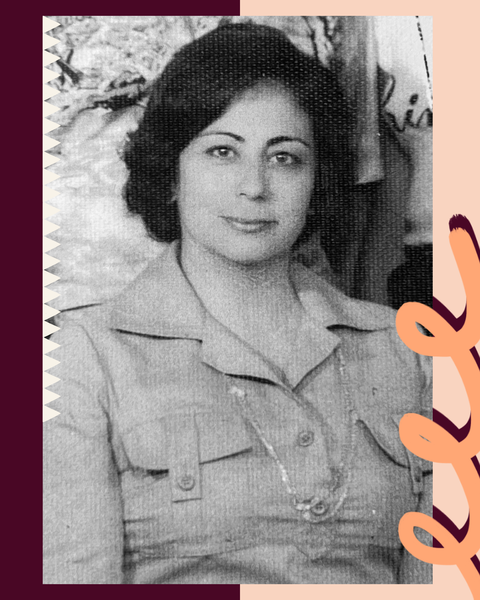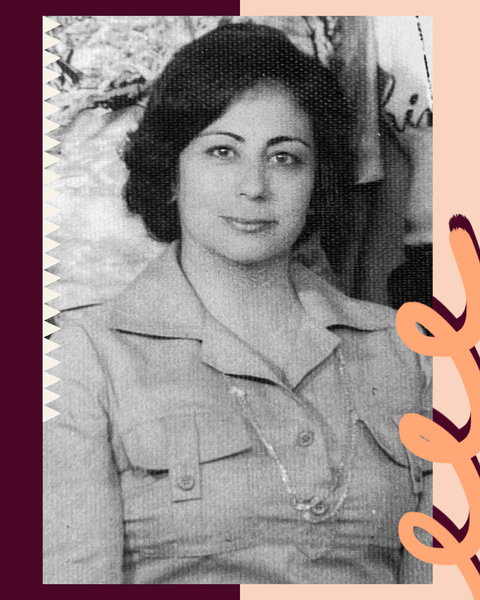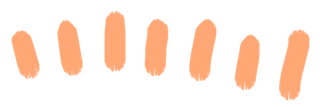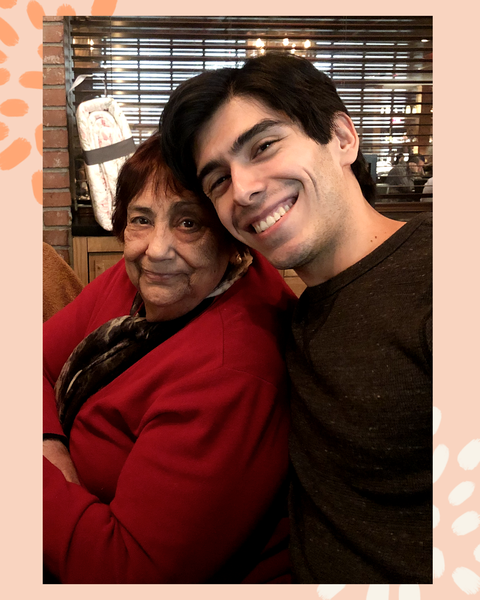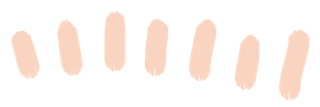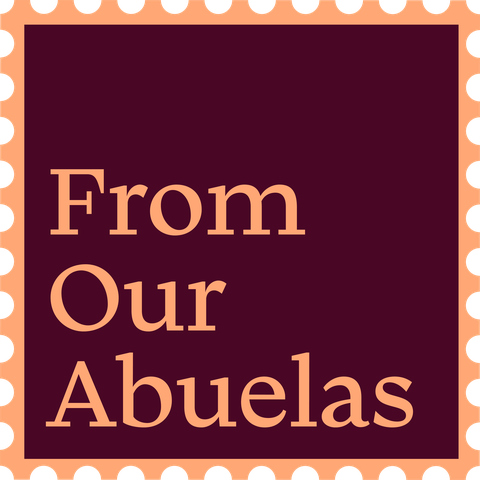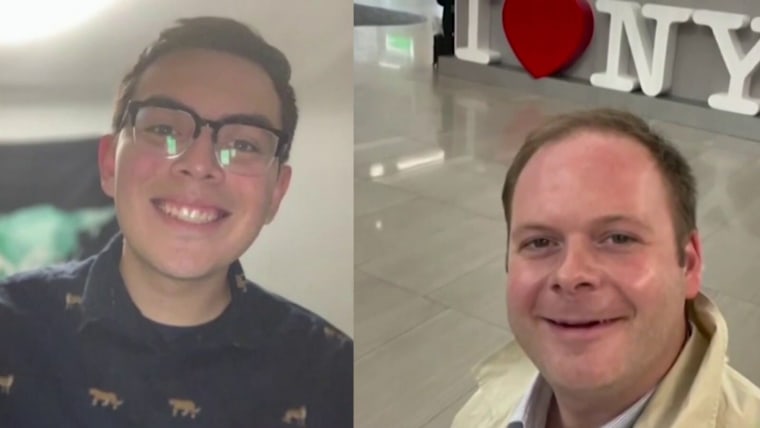If you are born brown and gay, being raised with your maternal grandmother’s unconditional love is a game changer. This is especially true when your divorced parents’ values are more conservative, your Colombian father lives on the West Coast, and your Peruvian mother is often away on U.N. missions to Africa. That’s when the likes of a grandmother like Mama Cora can make all the difference in a young person’s coming-of age story.
It certainly did for Jose Useche, the 27-year-old playwright and communications coordinator at GLAAD, an advocacy organization for the LGBTQ+ community. In Jose’s eyes, his abuela is the champion and knowledge holder of their large family scattered throughout New York, New Jersey, and Peru. From the age of 2 until the age of 10—although he lived on and off again with his mother—Jose’s home was with his grandmother and three older siblings in Bayside, Queens.
I’ve never come out to my abuela, and it’s special that I never had to. But I am definitely gay to her. She’s aware of my queer identity, and she’s met my “enamorados,” as she likes to call them.
Julia “Mama” Cora Mesones was born in Lima, Peru, on February 14, 1937 (“Valentine’s Day—that’s why she’s all love,” says Jose’s mother), and eventually moved to New York to be closer to her grandchildren. Mama Cora was put in charge of it all: dressing and feeding her four grandkids, packing lunches, taking them to school, and yes, even the scolding.
More From Oprah Daily

But mostly, she was Jose’s biggest fan and steady supporter. When he began attending the Professional Performing Arts School in Manhattan and Ithaca College for theater and dance, Mama Cora encouraged him during every production. Perhaps more importantly, she also supported him as a queer man. “I’ve never come out to my abuela,” says Jose. “And it’s special that I never had to. But I am definitely gay to her. She’s aware of my queer identity, and she’s met my ‘enamorados,’ as she likes to call them.”
Jose spoke with Oprah Daily about how her steadfast support allowed him to be true to himself.
What was your home life like growing up?
My mom was away a lot, and that was really hard on me. She’s worked for the United Nations for 33 years now. She used to work for the Department of Peacekeeping Operations. Once, she was in the Democratic Republic of Congo for about six years.
It was exceptionally challenging for my mother, I’m sure, to be away from us. We all really struggled.
And so, how would you describe the role your abuela played in raising you?
Integral! My abuela was truly our caretaker. Food was easily her love language, and she did not hesitate to use it. We joke that the only way to offend my grandma is to turn down her cooking. She was very crafty, sewing and helping out with school projects. I remember, once, I had to play Abraham Lincoln in a school presentation, and she made me this awesome hat.
Her unconditional love was important, too. Not only for my queer identity, but I don’t know what my mom would have done without her. To ask your mother to raise four kids while you have to leave the country to make money—I mean, it’s just so profound. Every single one of us feels this unbelievable tie to her.
And how did it go when you came out to your parents?
When I first came out to my mom, she kicked me out. I was 14. She was not very thrilled about my identity. But my mom has done a total 180 since. Our family actually had a kind of reckoning with the Catholic Church because my sister wanted to baptize her son. And they said no because he was born out of wedlock. It was a bit dystonic and surprising for us. So we pivoted to Christianity. And after that, the understanding that God is love and that God accepts and loves all of His children really did infiltrate. What happened with my family is that love prevailed.
I was 18 when I told my dad, and I just called him and was like, “Frankly, I just need a lifeline.” It was a double whammy, because I’m gay and my boyfriend just broke up with me. And he was essentially just like, “Yeah, breakups are horrible.” He didn’t even take a moment to be like, “Oh, well, you know, the Bible says this” or whatever.
Do you remember the first time you brought somebody home?
Thanksgiving. And I remember he and I were making these cookies shaped like turkeys, and my grandmother came and helped us, and she was making these silly turkey sounds. There we were, my grandmother, this waify white boy I brought home, and myself, all around the table arranging these candy corns like feathers. It was simple and beautiful.
My heart goes out to anyone, especially if they’re Latinx, whose family has not yet seen the light and learned that love is the way.
What did Mama Cora teach you about your Peruvian culture?
Having her as the window into our culture was a saving grace. I struggled with what it meant to be Latino in college. I felt like I didn’t know anything, how this made me different and, perhaps more importantly, how that made me special. I had to do a project in college called Ancestral Voices. So I interviewed my grandmother. And she revealed to me that we had this great-great-grandfather who was an explorer and who charted a mountain in Peru. I was so proud of this story and monologue. And my grandmother gave it to me because she has truly embraced what it means to be Peruvian. She is that beacon of the homeland for me. And that is what is healing. Especially when I think that there are people who want to erase that or take that away from me. Knowledge is power, and she really wields that knowledge. And in turn, that gave me power.
If you hadn’t had your grandmother, what might it all have been like?
Her style was sort of hands-off, “Eat your food, be home at this time, go to school.” It allowed me to be like, “Okay, off I go!” But with my mom, I think there would have been more of a trying to fit into a box so I could be in her good graces. When I go home, I don’t have to adjust. I don’t have to censor myself. I feel like I’m more myself because I’m not watching myself, my affectations, my hands, or anything, because I don’t have to. That’s a gift. My heart goes out to anyone, especially if they’re Latinx, whose family has not yet seen the light and learned that love is the way.
This conversation has been edited and condensed for clarity.
This story was created as part of From Our Abuelas in partnership with Lexus. From Our Abuelas is a series running across Hearst Magazines to honor and preserve generations of wisdom within Latinx and Hispanic communities. Go to oprahdaily.com/fromourabuelas for the complete portfolio.
Adriana V. López is an arts and culture writer who has written for Rolling Stone, The New York Times, Book Forum, among other publications. She was the editor for the anthologies Barcelona Noir, Count on Me and Fifteen Candles and translates works of fiction and non fiction from the Spanish to English. She is currently working overtime as her daughter’s personal assistant and divides her time between her native New York and adopted city of Madrid.
This content is imported from OpenWeb. You may be able to find the same content in another format, or you may be able to find more information, at their web site.

